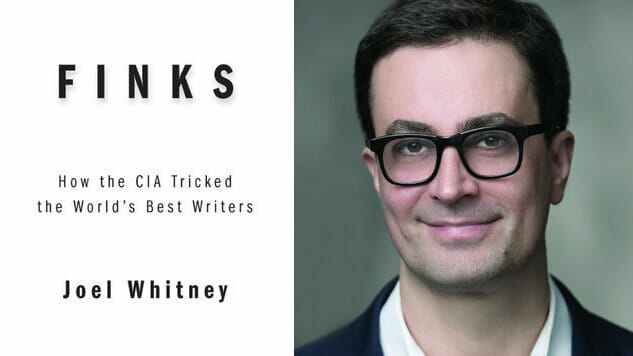Joel Whitney Talks Finks, His New Book Revealing “How the CIA Tricked the World’s Best Writers”
Author photo by Beowulf Sheehan
The CIA’s mystique during the Cold War was undeniable, as the Agency became a symbol for indiscretions in the name of advancing the United States’ international influence. In Joel Whitney’s new book, Finks, the author explores the CIA’s specific role in combating Soviet propaganda by creating its own. The text chronicles the relationships between the CIA’s Congress for Cultural Freedom (CCF) and the literary community, revealing how the Agency helped fund literary magazines around the world, including The Paris Review.
During the process of launching the magazine Guernica, Whitney had often encountered an idea that politics and literature should be separate. It was something that stuck with him.
“It never landed right and I never forgot about it,” Whitney says in an interview with Paste.
Then he learned something that seemed to counter that very thought while watching Immy Humes’ documentary about her father and The Paris Review co-founder H.L. “Doc” Humes. The film discusses the CIA’s role in establishing the supposedly apolitical magazine, so Whitney decided to do some digging. What he discovered was a network of funding and operatives that connected the Ivy League, some of literature’s biggest names and the CIA’s propaganda machine.
 Although arrangements varied, the case of The Paris Review stands out. The CCF paid the magazine’s founders—Humes, Peter Matthiessen and George Plimpton—a fee in exchange for their famed Art of Fiction interviews, which would then be syndicated in other publications. The CCF also funneled money to the founders through various organizations, and in turn the magazine’s editorial policy was apolitical in name but aligned with the CIA’s larger mission of promoting American culture. Elsewhere, editors involved with the CIA published anti-Soviet works, like Boris Pasternak’s Dr. Zhivago, and also suppressed work seen as too critical of U.S. policy, including that of Dwight MacDonald and Emily Hahn.
Although arrangements varied, the case of The Paris Review stands out. The CCF paid the magazine’s founders—Humes, Peter Matthiessen and George Plimpton—a fee in exchange for their famed Art of Fiction interviews, which would then be syndicated in other publications. The CCF also funneled money to the founders through various organizations, and in turn the magazine’s editorial policy was apolitical in name but aligned with the CIA’s larger mission of promoting American culture. Elsewhere, editors involved with the CIA published anti-Soviet works, like Boris Pasternak’s Dr. Zhivago, and also suppressed work seen as too critical of U.S. policy, including that of Dwight MacDonald and Emily Hahn.
Funding played a key role in these arrangements, just as it does for publications today. The question of how to secure funding for niche publications is nothing new, and it’s something that Whitney himself has experienced. That perspective lends the book a nuance that many in publishing will likely find familiar, as famed writers and editors had to decide what they were and weren’t comfortable with in the name of a paycheck.
“I have a lot of sympathy for individual artists and creators who are trying to find their way and find funding,” Whitney says, noting that he supports robust government funding for the arts when the lines between the funding source and creative side are clearly drawn and respected. “I’m pretty far from a purist. As a founding board member of Guernica, I am always sympathetic to people who want to make a magazine legacy last by securing stable funding.”
Like many writers and editors who might see some of their own moral dilemmas reflected back to them—albeit on a much grander level—Whitney comes to the topic with a duality of experience.